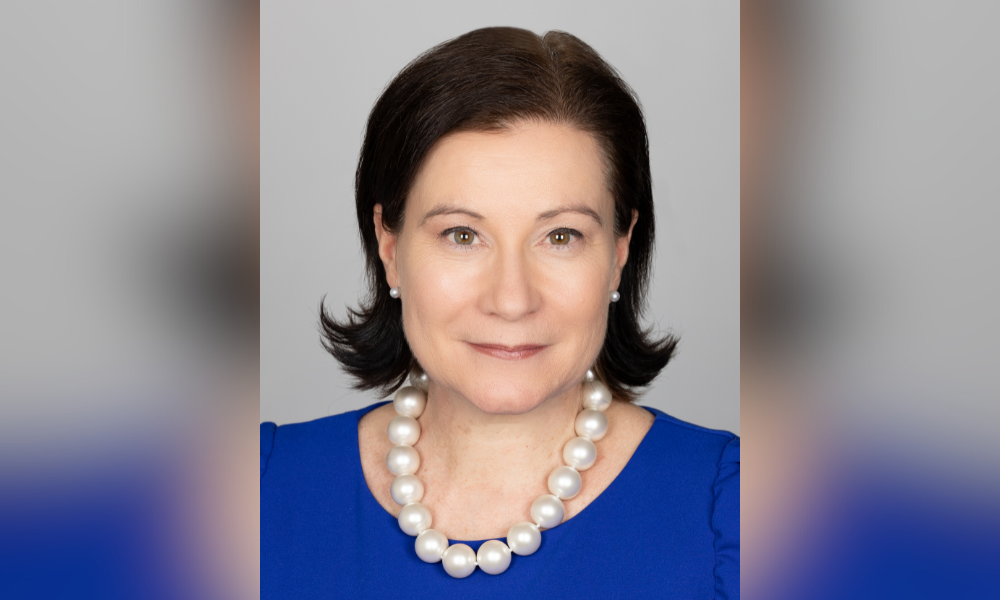
Gagnon is a speaker at the ESG Summit on Oct. 12

Environmental, social, and governance matters have become increasingly significant to many businesses as they strive to comply with the demands of investors, regulators, customers and key stakeholders. In-house legal departments play a vital role in assisting businesses with the shift to a focus on ESG matters while also navigating the growing risks and opportunities associated with these initiatives.
The role of in-house counsel is particularly important with regard to governance matters, according to Hélène V. Gagnon, chief sustainability officer and senior vice president, stakeholder engagement at CAE Inc. – a Canadian-based global manufacturer of flight simulation technologies.
“In recent years, companies are starting to be much clearer as to what’s expected from them in terms of ethics, anticorruption, and abiding on anything around human rights, forced labour, modern slavery, and child labour in the supply chain – not just for employees but for any person or entity interacting with the company,” says Gagnon, who will be speaking at the ESG Summit on October 12 in Toronto.
As a multinational company, CAE has thousands of suppliers around the world, so Gagnon is focused on helping the company to enforce its human rights policy through the entire supply chain right down to the third and fourth tier of suppliers. Gagnon chairs a social responsibility committee which also includes the chief legal and chief compliance officer.
“It really is a team effort, and the legal team is very much a part of that at CAE,” says Gagnon who is a member of the Quebec Bar and a lawyer by training, though she no longer practices law in her role at CAE.
When integrating ESG initiatives into the framework of a business, in-house counsel and other members of the management team must consider a number of risks as well as opportunities that may arise. At CAE, an enterprise risk management framework makes it easier for the team to understand and assess risks as they crop up. Gagnon notes that stakeholder management is key to mitigating risk and to finding opportunities that can create value.
As chief sustainability officer and SVP, stakeholder engagement, Gagnon considers herself a “change agent” so she focuses on mobilization and awareness to ensure that her colleagues understand the ESG priorities of the company and the risks and opportunities that it presents.
“My rôle is to work very closely with the business leaders to see how we can actually derive value from ESG, so our leadership is all about transparency, sharing information, being engaging and showing the vision of where we want to go,” says Gagnon.
Gagnon has defined a five-year roadmap that CAE published in its recent sustainability report. She is also focused on training the board of directors and executive team on matters including how the company calculates its carbon footprint.
Gagnon recommends establishing a materiality matrix to determine what is material from an ESG standpoint for the specific company and its stakeholders. From there, you can start to define a plan based on that material, she says.
“For example, we don’t use a lot of water so we don’t have a big action plan related to water usage because this is not really material from an ESG point of view for us or for our stakeholders – but it would be more important for some other companies,” Gagnon says.
By contrast, greenhouse gas emissions are significant for CAE, as a part of the aviation industry, so the company is working closely with customers and suppliers to help achieve the industry’s commitment to be net zero by 2050. The company’s simulator technology allows pilot training without the use of an aircraft, thus preventing carbon dioxide emissions, for example.
Gagnon is proud of CAE’s progress on the environmental side, as the company is the first aerospace company to be carbon neutral.
“I think the fact that we’ve defined ambitious coals and said that we want to be a leader in that space has been really helpful,” she says. “We’ve demonstrated that are serious about ESG and we’re proud of what we’re doing.”